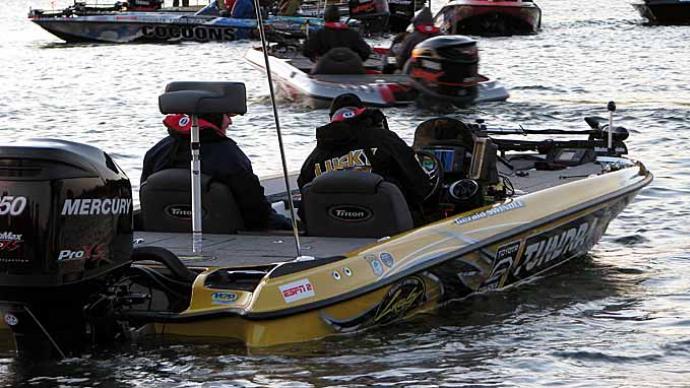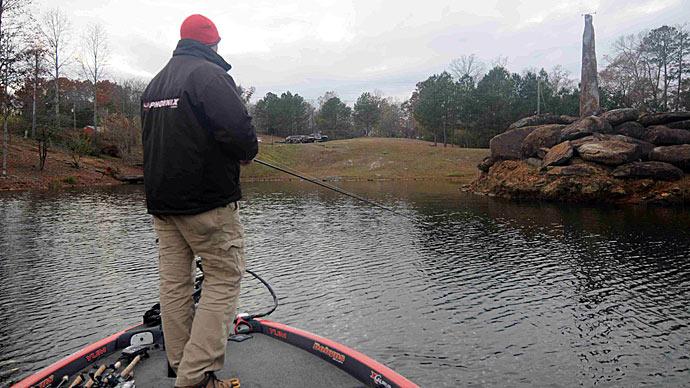
Following the Bassmaster Classic on Lake Wylie, several anglers asked me if I thought I could have done better than Takahiro Omori, the eventual winner. They asked that question since I consider Wylie to be my home lake and I tend to do very well there.
Omori only caught five keepers the last day, but it was enough to make him the winner. If I only caught five keepers during a day on Wylie, I wouldn’t consider it a good day. But that doesn’t matter. If five keepers are good enough to win, that’s as good as catching 100, especially when those five are quality fish.
What anglers overlook is that fishing under Bassmaster Classic conditions is a lot different than fishing as just another day on the water. When I’m out there fishing for fun, I don’t have the same pressure to perform nor are there as many distractions.
Furthermore, late-summer fishing, with hot water temperatures and depleted oxygen levels, makes for difficult conditions. When you put that many good fishermen on a body of water fishing for such high stakes, throw in dozens of spectator boats and the usual weekend boat traffic, fishing is going to be even tougher. Therefore, it’s going to require a higher level of mental toughness from the angler.
Mental toughness is so important in fishing, regardless of whether you’re fishing for fun or competing in a national championship. As you approach the season, assess some of the things you may have done wrong last year and consider what successful anglers to when the chips are down.
For example, Omori showed his toughness by staying sharp throughout the day. He caught three keepers in the last hour, and that’s what won it for him. Most anglers would have given up after such a slow start.
Non-tournament anglers who exhibit similar toughness will find a way to salvage a good day when things aren’t working well for them. Too many anglers arrive at the water with great expectations and when the fish aren’t cooperating or helping them meet those expectations, they lose confidence and their focus. Mentally tough anglers bear down, accept the situation and focus even more.
That’s why I recommend anglers lower their expectations before they get to the lake and be prepared to work hard for every bite. Indeed, you may get on the water and find the bass are extremely cooperative but chances are that won’t be the case.
If fishing is slow and you catch only a few good fish, stick with that pattern. Resist the temptation to run around trying new things or patterns that you may have read about the day before. On the other hand, if your game plan isn’t producing, focus on alternatives that fit the seasonal pattern. Sometimes all you need to do is tweak a pattern to make it more productive.
Mentally tough anglers also look for telltale signs that will clue them in to what might make the fish bite better. For example, if you’re fishing a lake with a power dam, watch for changes in the current or weather. If dam operators start pulling water, go back and fish your best stuff because the bass there might start biting. If the wind picks up, look for the windy banks where fish might be more aggressive. Watch for bird activity or areas where baitfish are actively working the surface.
When fishing gets tough, I bear down on shallow water. Fish that live in the shallows are more likely to strike and are easier to target, regardless of water temperatures. They cling to cover and are highly susceptible to flipping and pitching tactics. Many anglers think that when the water is hot, the fish move deep. Yet in lakes with poor oxygen, they actually move shallower.
Don’t overlook reactionary presentations either. A crankbait banging against a shallow log, a heavy jig falling abruptly into the fish’s lair or a spinnerbait crashing through a brush top is more likely to trigger a strike than a worm pulled slowly along the bottom.
Finally, maintain confidence that the fish will turn on. It’s rare that they’ll go the entire day without feeding, even though those feeding periods may be brief. Just make sure you’re fishing productive water and always put yourself in a position to capitalize when conditions improve.
You can find more articles, quick tips and much more at HankParker.com.




